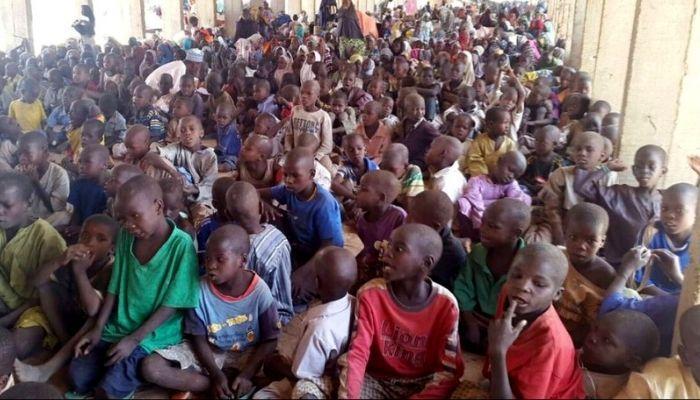•Development alarming, says UNICEF
From Agaju Madugba, Kano
The United Nations Children’s Fund (UNICEF) has described as alarming the number of out-of-school children in Nigeria’s North-West zone with unenviable statistics from Katsina, Kano and Jigawa states.
According to the Chief of UNICEF Field Office Kano, Mr Rahama Mohammed Farah, “while North-West Nigeria has the second highest out-of-school rates in Nigeria, the situation of out-of-school population in Kano, Jigawa and Katsina states is alarming.
He spoke on Friday in Kano during a briefing to mark the 2025 edition of the International Day of Education. The UN General Assembly in December 2018 declared January 24 as the International Day of Education. The theme of this year’s celebration is, “AI and Education: Preserving Human Agency in a World of Automation,”
He noted that the situation in the three states is further exacerbated by poor learning outcomes for those children who are fortunate to be enrolled in school.
Quoting the Multiple Indicator Cluster Survey (MICS), the UNICEF Chief said that, “32 per cent of primary school going age children are out of school in Kano state.
“There are currently about 10.2 million children at the primary level are out-of-school in Nigeria, 16 per cent of them are from Kano, Jigawa and Katsina states.
“Close to one million children are out-of-school in Kano State (989,234), a total of 337, 861 children in Jigawa while Katsina State has 536, 112 out-of-school children. While the spectre of out-of-school children is a major concern, the challenge is that even those children who have the opportunity to be enrolled in school are not having quality education.
“Only one out of four children in Nigeria, aged 7-14 years can read and understand a simple sentence or solve basic arithmetic, according to the MICS report.
“Across Kano, Jigawa and Katsina states, this challenge is staggering as tests conducted by the Federal Ministry of Education in 2022 found that foundational learning rates stand at 11 per cent or lower in the three states of Kano, Jigawa and Katsina.
“For instance, only 2 per cent of primary school learners in Jigawa state have foundational reading skills while less than 1per cent have numeracy skills.
“Although Kano figures appear better at 9.6 per cent for reading proficiency and 11.2 per cent for numeracy, these figures are way lower than the national averages of 26 per cent per cent for reading proficiency and 25 per cent for numeracy, respectively.”

